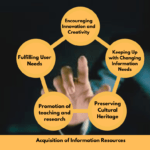Since the dawn of civilization, humankind has sought knowledge, not only for survival but also for cultural enrichment and progress. From primitive gestures and cave drawings to the earliest inscriptions etched into clay tablets, the story of humanity has always been tied to its ability to record, store, and pass on information. The first known forms of writing, which appeared about five thousand years ago, marked the beginning of organized communication. Over time, these records were safeguarded in places that would eventually evolve into libraries. Libraries, therefore, have always stood as guardians of civilization—preserving the wisdom of generations, ensuring the spread of ideas, and nurturing the intellectual growth of societies.
Among the world’s greatest repositories of knowledge is the Lenin State Library of Russia, a monumental institution that continues to embody the rich cultural and intellectual traditions of the Russian people. Known today as the Russian State Library, this institution has played a pivotal role in shaping scholarship and preserving national heritage.

Background and Origins of Lenin State Library
The history of the Lenin State Library is intertwined with the cultural development of Russia. Before it bore the name of Lenin, it was known as the Rumyantsev Library, named after Count Nikolay Rumyantsev, a prominent Russian statesman, diplomat, and patron of learning. The origins of the library trace back to the early 19th century, when Rumyantsev’s private collection was made available to the public. His efforts reflected the growing recognition in Russia that knowledge should not remain confined to the elite but should be shared with wider society.
Over time, this private collection expanded and evolved, giving rise to an institution of national importance. The Russian Revolution of 1917 marked a turning point in the library’s history. Following the revolution, the state placed increased emphasis on education, public literacy, and the dissemination of knowledge. In this context, the library was reorganized and renamed in honor of Vladimir Lenin, the leader of the revolution. The decision to dedicate the library to Lenin reflected his vision of an educated, informed citizenry that could contribute to building a new society.
By 1940, the Lenin State Library had been moved into a new, purpose-built building in Moscow, one that reflected the architectural ambitions of the Soviet Union. This move signaled not only the expansion of the institution but also its transformation into one of the largest and most important libraries in the world.
Growth and Expansion of Lenin State Library
The Lenin State Library did not remain static after its establishment. Over the decades, it expanded in both scope and scale. Today, it encompasses multiple departments, each dedicated to specialized areas of knowledge and research. This diversification allows the library to serve scholars, students, and the general public alike, ensuring that the vast resources of the institution remain accessible to all.
During the Soviet era, the library’s expansion was closely tied to state policy. As part of the government’s commitment to universal literacy and cultural advancement, the library became a central hub for collecting, storing, and distributing books, manuscripts, and official publications. Copies of all documents issued by the Russian administration were deposited in the library, making it not only a cultural treasure but also a living archive of the Soviet state.
Collection and Holdings
One of the defining features of the Lenin State Library is the sheer scale and diversity of its collection. Few libraries in the world can rival its holdings. The library houses approximately 20 million books, a staggering number that reflects the centuries-long accumulation of knowledge. In addition, it possesses half a million manuscripts, many of which are rare and irreplaceable. These manuscripts span various languages, cultures, and time periods, making the library an invaluable resource for researchers in fields ranging from history and literature to linguistics and anthropology.
The library’s collection is not limited to books and manuscripts alone. It also includes vast numbers of periodicals, encyclopedias, and journals, which provide insights into both historical and contemporary developments. Of particular note is the library’s remarkable newspaper collection. Newspapers are preserved in about 156 languages, reflecting the global scope of the institution’s holdings. Among these are newspapers published in 11 languages of the Soviet republics, ensuring that the diverse voices and perspectives within the former Soviet Union are represented.
In total, the library boasts around 345,000 manuscripts, making it one of the richest manuscript collections in the world. These documents are invaluable for scholars tracing the evolution of ideas, the history of nations, and the intricacies of cultural exchange.
The Lenin State Library also engages in publishing its own works. These publications often serve to highlight rare documents, catalog important collections, or advance scholarly research. Through its publishing efforts, the library not only preserves knowledge but also actively contributes to its dissemination.
Cultural and Educational Role
The Lenin State Library has always been more than just a warehouse of books. It has served as a cultural institution that reflects and shapes the identity of Russian civilization. During the Soviet era, it was a vital tool for advancing state policy on education and literacy. By providing access to vast resources, it enabled citizens to engage with science, literature, and the arts, thus cultivating a population that was both informed and intellectually active.
At the same time, the library has been a center for scholarship. Researchers from Russia and around the world continue to rely on its vast holdings to advance their studies. Its reputation as a leading center of research has made it a hub for intellectual exchange, where ideas cross boundaries of geography and discipline.
The library also plays a symbolic role in Russian society. As a repository of national memory, it safeguards the cultural and historical heritage of the Russian people. Its collections reflect the triumphs and challenges of the past, ensuring that future generations can learn from the experiences of those who came before.
Legacy and Global Importance
The Lenin State Library stands today as a monument to the enduring human quest for knowledge. It is not merely a Russian institution but a global one, holding treasures that belong to all of humanity. Its collections are consulted by scholars from every corner of the world, and its influence extends far beyond the borders of Russia.
Moreover, the library’s evolution reflects broader historical trends. From its origins in the private collection of Count Rumyantsev to its transformation into a national institution after the revolution, and its subsequent expansion during the Soviet era, the Lenin State Library embodies the ways in which political, cultural, and social forces shape the preservation and distribution of knowledge.
In the digital age, the library continues to adapt. While maintaining its vast physical holdings, it has also embraced digitization, making resources available to a wider audience. This ensures that its treasures remain relevant and accessible in a world increasingly dependent on technology.
The Lenin State Library, now the Russian State Library, is far more than a building filled with books. It is a living institution that has preserved, nurtured, and disseminated knowledge for centuries. With its 20 million books, hundreds of thousands of manuscripts, and a global collection of newspapers and periodicals, it stands as one of the greatest libraries in the world.
Its origins in the Rumyantsev Library, its transformation during the Russian Revolution, and its expansion in the 20th century all reflect the evolving relationship between knowledge and society. Today, it continues to bear witness to the cultural and intellectual achievements of Russia while serving as a beacon for scholars and knowledge-seekers around the globe.
In an age when information is both more accessible and more fragile than ever, the Lenin State Library reminds us of the enduring importance of safeguarding humanity’s intellectual heritage. It is not merely a library of Russia, but a library of the world.



